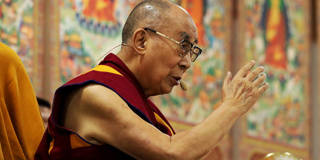The controversy surrounding a recent video of the Dalai Lama greeting a seven-year-old boy was not merely a classic case of “lost in translation.” It also speaks to the deep, ineradicable abyss that can separate cultures, and invites reflection on the confusion surrounding intentions and desires that can occur within cultures.
LJUBLJANA – In a recent viral video, the Dalai Lama can be seen asking a seven-year-old boy, at a widely attended public ceremony, to give him a hug and then, “Suck my tongue.” The immediate reaction from many in the West was to condemn the Dalai Lama for behaving inappropriately, with many speculating that he is senile, a pedophile, or both. Others, more charitably, noted that sticking out one’s tongue is a traditional practice in Tibetan culture – a sign of benevolence (demonstrating that one’s tongue is not dark, which indicates evil). Still, asking someone to suck it has no place in the tradition.

LJUBLJANA – In a recent viral video, the Dalai Lama can be seen asking a seven-year-old boy, at a widely attended public ceremony, to give him a hug and then, “Suck my tongue.” The immediate reaction from many in the West was to condemn the Dalai Lama for behaving inappropriately, with many speculating that he is senile, a pedophile, or both. Others, more charitably, noted that sticking out one’s tongue is a traditional practice in Tibetan culture – a sign of benevolence (demonstrating that one’s tongue is not dark, which indicates evil). Still, asking someone to suck it has no place in the tradition.